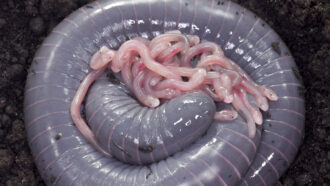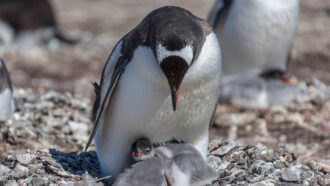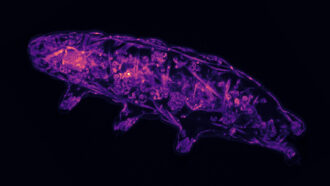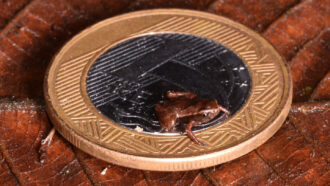Crocodile hearts
A crocodile's special heart may help it digest large, bony meals.
Crocodiles may not cry real tears, but they do have special hearts.
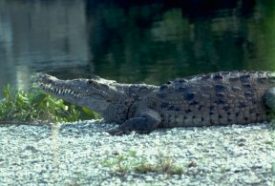 |
|
A crocodile’s heart may help it digest large, bony meals.
|
| U.S. Fish & Wildlife Service |
Like mammal and bird hearts, a crocodile’s heart is a muscle that pumps blood. One side of the heart sends blood that is full of oxygen out to most of the body. The other side pulls blood back toward the lungs to give it an oxygen refill.
But crocodile (and alligator) hearts have an extra valve that mammal and bird hearts don’t have. The extra valve is a flap that the animal can close in order to keep blood from flowing toward the lungs. This means that the blood goes right back into the body instead.
Although scientists have known about the crocodile heart’s extra valve for many years, they haven’t known what it was for. Some scientists thought that it might help crocodiles and alligators stay underwater longer, making them better, more deadly hunters.
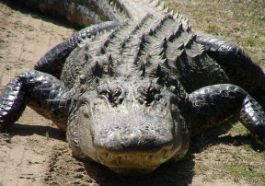 |
|
Like that of a crocodile, an alligator heart may send blood to the animal’s stomach to help with digestion.
|
| Ginger L. Corbin, U.S. Fish & Wildlife Service |
Now, scientists have a new idea about what a crocodile’s heart can do. By studying captive alligators, scientists discovered that the extra valve can reroute some of the blood normally pumped to its lungs to its stomach instead. This diversion lasts about the same amount of time that it takes an alligator to digest a big meal.
To see if the valve is really connected to digestion, the scientists used surgery to close the valve in some captive alligators but left it working in others. They then fed each alligator a meal of hamburger meat and an oxtail bone. Alligators with a working valve digested the tough meal quicker.
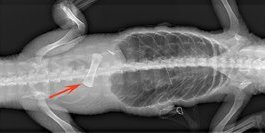 |
|
This X ray shows a bone in the stomach of an alligator. An alligator’s heart may help it digest this meal.
|
| Colleen G. Farmer, University of Utah |
Blood returning from the body to the heart has extra carbon dioxide. Carbon dioxide is also a building block of stomach acid, which helps digest food. So, when blood rich with carbon dioxide goes to the stomach instead of the lungs, it can aid digestion.
Whether it helps alligators and crocodiles pursue their underwater prey or helps them digest it, the heart’s special valve does seem to give these hunters a leg up on the competition.
